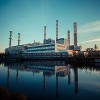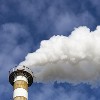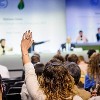Energy Program News
2020
Working towards carbon neutrality in China
IIASA researchers contributed to a new report that argues for an integrated economy-wide decarbonization, in which China not only meets its carbon neutrality target, but also achieves a broader vision for growth and development. More
Cooperation across boundaries and sectors could boost sustainable development in South Asia
A new analysis of food, energy, water, and climate change in the Indus Basin shows how a cross-boundary and multi-sectoral perspective could lead to economic benefits and lower costs for all countries involved. More
Strengthening the climate change scenario framework
Over the past decade, the climate change research community developed a scenario framework that combines alternative futures of climate and society to facilitate integrated research and consistent assessment to inform policy. An international team of researchers assessed how well this framework is working and what challenges it faces. More
List of Highly Cited Researchers 2020 announced
We are proud to announce that several IIASA researchers have been named on the annual Highly Cited Researchers list from Clarivate. More
Combatting climate change – how to best use new technologies?
A new grant from the European Research Council (ERC) will fund an international research project on negative emissions technologies. IIASA Energy Program Director Keywan Riahi is one of the project leaders. More
Hotspots Explorer makes climate risk research accessible
IIASA, the United Nations Industrial Development Organisation, and the Global Environment Facility have launched an interactive online mapping tool that allows the public and policymakers to easily explore overlapping and interconnected climate risks around the world. More
A renewable solution to keep cool in a warming world
Month-on-month, year-on-year, the world continues to experience record high temperatures. In response to this and exacerbated by a growing global population, it is expected that air-conditioning demand will continue to rise. A new IIASA-led study explored the pros and cons of seawater air-conditioning as an alternative cooling solution. More
Fraction of COVID-19 recovery funds could boost climate efforts
Global stimulus plans for economic recovery after the pandemic could easily cover climate-friendly policies, suggests new study. More
Decent living for all does not have to cost the Earth
Global energy consumption in 2050 could be reduced to the levels of the 1960s and still provide a decent standard of living for a population three times larger, according to a new study. More
Advancing the accurate tracking of energy poverty
IIASA researchers have developed a novel measurement framework to track energy poverty that better aligns with the services people lack rather than capturing the mere absence of physical connections to a source of electricity. This alternative framework can aid better tracking of Sustainable Development Goal (SDG) 7 by virtue of its simplicity and sensitivity to the diversity in service conditions among the poor. More
New scenarios to help global finance go green
A key role of central banks is to strive for financial stability. To assess climate destabilization risks, major central banks and supervisors plan to utilize a new set of climate scenarios developed by an international team of researchers. More
Making sense of climate scenarios: New toolkit available for decision makers
To make climate scenarios work for decision makers, an international team of researchers have developed a comprehensive interactive online platform. More
Defining a safe and just space for people and planet
A new working group of the Earth Commission, comprising renowned scientists from institutions around the world including IIASA, will investigate future pathways of how humanity might develop sustainably to ensure a safe and just world for all. More
Five years after the Paris Agreement: The gap between promises and implementation
The results of a new study show that achieving the goals of the Paris Agreement will require a deep reduction in global greenhouse gas emissions, ideally by around 40% to 50% by 2030. More
Can sub-Saharan Africa achieve sustainable access to energy for all by 2030?
In 2019, the global population without access to electricity dipped below 1 billion for the first time. This progress has however been uneven, both across and within different regions. A new IIASA study shows that to ensure universal access to affordable, reliable, and modern electricity services by 2030 in sub-Saharan Africa, the pace of electrification must more than triple. More
Could water solve the renewable energy storage challenge?
Seasonally pumped hydropower storage could provide an affordable way to store renewable energy over the long-term, filling a much needed gap to support the transition to renewable energy, according to a new study from IIASA scientists. More
2019
Could we cool the Earth with an ice-free Arctic?
The Arctic region is heating up faster than any other place on Earth, and as more and more sea ice is lost every year, we are already feeling the impacts. IIASA researchers explored strategies for cooling down the oceans in a world without this important cooling mechanism. More
IIASA researchers among top 1% of most highly cited scientists
Several IIASA researchers from the Air Quality and Greenhouse Gases Program, the Energy Program, the Ecosystems Services and Management Program, and the Water Program, have been recognized again for their outstanding contribution to scientific literature. More
Beyond the green revolution
There has been a substantial increase in food production over the last 50 years, but it has been accompanied by a narrowing in the diversity of cultivated crops. New research shows that diversifying crop production can make food supply more nutritious, reduce resource demand and greenhouse gas emissions, and enhance climate resilience without reducing calorie production or requiring more land. More
How much energy do we really need?
Two fundamental goals of humanity are to eradicate poverty and reduce climate change, and it is critical that the world knows whether achieving these goals will involve trade-offs. New IIASA research for the first time provides a basis to answer this question, including the tools needed to relate basic needs directly to resource use. More
Using mountains for long-term energy storage
The storage of energy for long periods of time is subject to special challenges. An IIASA researcher proposes using a combination of Mountain Gravity Energy Storage (MGES) and hydropower as a solution for this issue. More
Exposing blind spots in the carbon budget space
The impact of 1°C of global heating is already having devastating impacts on communities and ecosystems across the globe. An international research group that included researchers from IIASA and Japan, identified biases towards some selected carbon budgets in the current scenario literature. They propose a more comprehensive approach to systematically explore the carbon budget scenario space. More
Exploring the future of coal power in water scarce Asia
Many aspects of modern energy systems necessitate access to reliable water resources. The findings of a new study involving IIASA researchers shows that Developing Asia’s long-term electricity generation plans – which relies heavily on coal power generation – could be significantly impacted by regional changes in the availability of water under climate change. More
Rethinking scenario logic for climate policy
Current scenarios used to inform climate policy have a weakness in that they typically focus on reaching specific climate goals in 2100 – an approach which may encourage risky pathways that could have long-term negative effects. A new IIASA-led study presents a novel scenario framework that focuses on capping global warming at a maximum level with either temperature stabilization or reversal thereafter. More
Making a case for returning airships to the skies
Reintroducing airships into the world’s transportation-mix could contribute to lowering the transport sector’s carbon emissions and can play a role in establishing a sustainable hydrogen-based economy. According to the authors of an IIASA-led study, these lighter-than-air aircraft could ultimately increase the feasibility of a 100% sustainable world. More
Lifting the fog on carbon budgets
The concept of a carbon budget has become a popular tool in guiding climate policy since the Intergovernmental Panel on Climate Change’s (IPCC) Fifth Assessment Report was released in 2014. IIASA researchers were involved in the development of a framework that can help scientists determine which factors affect the size of the remaining carbon budget and how they interact. More
Curbing indoor air pollution in India
Clean cooking energy transitions are extremely challenging to achieve, but they offer enormous potential health, environmental, and societal benefits. A study by researchers from IIASA, the University of British Columbia, and the Stockholm Environment Institute provides new insights about an Indian program that aims to solve one of the most difficult developmental challenges of the 21st century – smoky kitchens. More
Picturing access to energy for all in sub-Saharan Africa
Satellite images showing nighttime lights on different continents have long been recognized as an indicator of the availability and use of electricity around the world. IIASA researchers examined the precision with which these images can be converted into detailed maps of electricity access in sub-Saharan Africa. More
More energy needed to cope with climate change
A new study published today in Nature Communications by researchers from IIASA, Boston University, and the Ca’ Foscari University of Venice found that by mid-century climate change will increase the demand for energy globally, even with modest warming. More
Weighing up trade-offs between food security and climate mitigation
IIASA researchers collaborated with colleagues in Japan to clarify the impacts of stringent climate mitigation policies on food security. The team identified smart and inclusive climate policy designs where the risk of food-security for hundreds of millions of people could be addressed at a modest cost. More
IIASA researcher appointed UN climate action advisory role
Joeri Rogelj has been appointed as a member of the Climate Science Advisory Group to the United Nations Secretary-General’s 2019 Climate Action Summit. The group comprises of international climate scientists who are highly recognized and respected in their field. Rogelj was appointed for his world-leading expertise in climate change mitigation and low-carbon scenarios. More
Gender in the transition to energy for all: From evidence to inclusive policies
IIASA researchers contributed to a new report released by the ENERGIA International Network on Gender and Sustainable Energy that looked at the role of gender in achieving sustainable energy for all. More
New report identifies critical investment needs for climate-friendly infrastructure
IIASA researchers contributed to a new World Bank report that provides a comprehensive estimate of spending needs for infrastructure goals in developing countries. It shows that smart investments could allow countries to achieve climate goals while simultaneously filling basic needs such as water and energy. More
Addressing cooling needs and energy poverty targets in the Global South
With most of the northern hemisphere currently in the icy grip of one of the coldest winters ever recorded, in the south it is record breaking heat that is the problem. The results of a new IIASA study show that between 1.8 and 4.1 billion people require access to indoor cooling to avoid heat related stresses. More
Integrated pathways for meeting climate targets and ensuring access to safe water
IIASA researchers have led work to develop new pathways showing how the world can develop water and energy infrastructure consistent with both the Paris Agreement and the UN Sustainable Development Goal 6 (SDG6) – Ensure availability and sustainable management of water and sanitation for all. More
Past news
IIASA researchers among top 1% of most highly cited scientists
Several IIASA researchers from the Air Quality and Greenhouse Gases Program, the Energy Program, the Ecosystems Services and Management Program, and the Water Program are among the world’s most highly cited scientists, according to a new list published by Clarivate Analytics. More
New UNEP report concludes nations must triple efforts to reach 2°C target
IIASA researchers Joeri Rogelj and Daniel Huppmann were among the contributors to the UN Environment Programme’s (UNEP’s) 2018 Emissions Gap Report, which says that while it is still possible to keep global warming below 2°C, the nations of the world must triple their efforts to reduce emissions. More
A people-centered approach to limiting global warming
Options Winter 2018/19: IIASA’s Low Energy Demand scenario shows how to limit global warming to 1.5°C in a different way. More
New interactive scenario explorer for 1.5°C pathways
IIASA and the Integrated Assessment Modeling Consortium (IAMC) have made the scenarios underlying last week’s Intergovernmental Panel on Climate Change (IPCC) 1.5°C Special Report publicly available, in an interactive online resource. The resource provides scenarios and a suite of visualization and analysis tools, making the assessment more transparent to researchers, policymakers, and the public. More
IIASA contributes to IPCC Special Report on Global Warming of 1.5°C
The Intergovernmental Panel on Climate Change (IPCC) has published its Special Report on Global Warming of 1.5°C, a new assessment on minimizing global warming, and multiple IIASA researchers were involved in its production. More
Behavior-influencing policies are critical for mass market success of low carbon vehicles
Policies to entice consumers away from fossil-fuel powered vehicles and normalize low carbon, alternative-fuel alternatives, such as electric vehicles, are vital if the world is to significantly reduce transport sector carbon emissions, according to new research. More
Six transformations needed to achieve the UN Sustainable Development Goals: major report launched
The World in 2050 (TWI2050) initiative has launched a new report, setting out six key transformations that will enable the world to meet the UN Sustainable Development Goals (SDGs). More
Clean power is not enough: More action in other sectors needed to meet Paris targets
CO2 emissions from non-electricity energy uses, such as industry, transport, and heating, are the greatest impediment to meeting the Paris climate targets, according to new research from an international team of scientists. More
Meeting Paris climate targets will require a substantial reallocation of global investment
A new analysis by an international team of scientists led by IIASA shows that low carbon investments will need to markedly increase if the world is to achieve the Paris Agreement aim of keeping global warming well below 2°C. More
Global warming can be limited to 1.5°C by transforming how we move around, heat our homes, and use devices
Global warming can be limited to 1.5°C by unprecedented improvements in the energy efficiency of everyday activities, according to new research from an international team of scientists at IIASA. More
NTNU and IIASA tighten collaboration on climate research in world leading network
Volker Krey has been appointed as an adjunct professor in the Industrial Ecology (IndEcol) Programme and will join the Norwegian University of Science and Technology (NTNU) Energy Transition initiative, strengthening the scientific ties between the two institutions. More
Global temperature rise of 2°C doubles the population exposed to multiple climate risks compared to a 1.5°C rise
New research identifying climate vulnerability hotspots has found that the number of people affected by multiple climate change risks could double if the global temperature rises by 2°C, compared to a rise of 1.5°C. More
16 banks and United Nations produce first guidance to help banking industry become more transparent on climate-related risks and opportunities
Sixteen leading banks from four continents, convened by the UN Environment Finance Initiative (UNEP FI), today published a jointly developed methodology to increase banks’ understanding of how climate change and climate action could impact their business. More
Achieving healthy, climate-friendly, affordable diets in India
New research led by IIASA researcher Narasimha Rao has shown how it might be possible to reduce micronutrient deficiencies in India in an affordable way whilst also reducing greenhouse gas emissions. More
Models show how to limit global temperature rise to 1.5°C
There are several ways to limit global temperature rise to 1.5°C by 2100, and new research led by IIASA researcher Joeri Rogelj shows under what conditions this could happen. More
Sea levels will rise 20 cm more by 2300 for each 5-year delay in peak emissions
Ensuring that global CO2 emissions peak as soon as possible is crucial for limiting sea-level rises, even if global warming is limited to well below 2°C. A new study involving IIASA research has now estimated how much sea levels will rise as a result of peak emission delays. More
Removing fossil fuel subsidies will not reduce CO2 emissions as much as hoped
Removing fossil fuel subsidies would have only a small effect on CO2 emissions and renewable energy use, new research has shown. The largest emissions savings would be in oil and gas exporting countries, where fewer poor people would be affected, and subsidy removal can be aided by currently low oil prices. More
IIASA researchers among most highly cited scientists
IIASA energy and air quality researchers have been recognized again for their outstanding contribution to scientific literature in the field of geosciences. More
International experts present ten-point memorandum on tackling climate change ahead of UN Climate Change Conference
A ten-point memorandum defines key global challenges for the coming years and calls upon state and non-governmental actors to accelerate their efforts to tackle climate change. More
Switch from wood to gas for cooking is not a climate problem
Switching from using fuelwood to liquefied petroleum gas (LPG) for cooking would provide modest climate benefits, but the extent of these depend on whether the wood is renewably sourced, and if the short-lived emissions from burning wood are taken into account, according to a new analysis focused on India. More
New hopes for limiting warming to 1.5°C
Significant emission reductions are required if we are to achieve one of the key goals of the Paris Agreement, and limit the increase in global average temperatures to 1.5°C, a new study warns. More
Ambiguous pledges leave large uncertainty under Paris climate agreement
Emission reduction pledges made by individual countries under the Paris Agreement leave a wide range of possible climate outcomes, according to new research. Without stronger pledges, the study shows, the climate goals may not be possible to achieve. More
Synergies and trade-offs in the Sustainable Development Goals
Interactions between the 17 Sustainable Development Goals can lead to synergies as well as trade-offs. A new report, with major contributions from IIASA scientists, provides a detailed analysis of four goals and their influence on other targets. More
Vienna Energy Forum to contribute to successful implementation of SDGs and Paris Agreement
The discussion at this year’s Vienna Energy Forum served as an important contribution to the debate and review of the Sustainable Development Goals (SDGs) and the Paris climate agreement and their successful implementation, said participants at the event taking place in the capital of Austria. More
Manfred Strubegger 1951-2017
It is with great sadness that IIASA marks the passing of Manfred Strubegger. An outstanding scientist in the Energy Program, he was instrumental in the development of the program’s core modeling framework. More
Next ten years critical for achieving climate change goals
In order to have a good chance of meeting the limits set by the Paris Agreement, it will be necessary to both reduce greenhouse gas emissions while preserving carbon sinks, with net emissions peaking in the next ten years, according to a new study. More
Wealth, culture, and cost affect household appliance purchases
As incomes rise, people buy more big appliances like washing machines, refrigerators, and televisions. But the link between income and appliance ownership is more complicated than is assumed. More
Innovative IIASA research highlighted by major journal
Five IIASA studies published in Environmental Research Letters in 2016 were selected for the journal’s Highlights of 2016, as especially innovative or groundbreaking work. More
Living standards lag behind economic growth
Even as average incomes rise in developing countries, access to sanitation and clean energy have yet to reach the poorest people, a new study shows. But there is room for optimism. More
New momentum in low-carbon energy
Low-carbon energy is gaining momentum worldwide and is globally reducing carbon dioxide pollution, but unless new technologies are deployed, this momentum could be threatened. More
Income and energy efficiency to drive future greenhouse gas emissions
Variation in projected long-term carbon dioxide emissions are primarily driven by future income and energy efficiency, according to new research. More
How fair are countries’ climate pledges?
Benchmarks to guide countries in ratcheting up their ambition to limit climate change to well-below 2°C and pursue 1.5°C in an equitable manner are critical, but not yet determined in the context of the Paris Agreement. More
IIASA researchers among most highly cited scientists
IIASA energy and air quality researchers were recognized for their outstanding contribution to the scientific literature in the field of geosciences. More
Daniel Huppmann receives INFORMS-ENRE Young Researcher Prize
IIASA Research Scholar Daniel Huppmann was awarded the 2016 Young Researcher Prize by the INFORMS Section on Energy, National Resources and the Environment (ENRE). More
Informing action on a historic climate agreement
The Paris Agreement on climate change goes into effect today, but while the agreement set ambitious targets for tackling climate change, scientists say there is a long way to go to achieve it. Research suggests pathways to get the world on track. More
Shared Socioeconomic Pathways now available
A special issue of the journal of Global Environmental Change dedicated solely on the topic of Shared Socioeconomic Pathways (SSPs), co-edited by Energy Program Director Keywan Riahi, and PBL Netherlands Environmental Assessment Agency senior researcher, Detlef van Vuuren, will soon be published, and the scenario data are available. More
The Earth system response to negative emissions
During the last century or so, over half of the CO2 emissions from fossil fuel burning, industry, and deforestation have been absorbed by natural sinks such as the forests and oceans. These natural sinks play a critical role in determining the climate effects of CO2 emissions. More
Country pledges overshoot Paris temperature limit
Individual country pledges to reduce greenhouse gas emissions would need to be strengthened in order to limit future climate change to well below the 2°C limit included in the Paris climate agreement, according to a new assessment. More
Joeri Rogelj receives the Piers Sellers Prize
IIASA Research Scholar Joeri Rogelj was awarded the 2016 Piers Sellers Prize for "world leading solution-focused climate research" by the Priestley International Centre for Climate. More
Climate consequences of oil price uncertainty could be significant
Oil prices can have a major impact on the types and quantities of energy sources used—and thus on greenhouse gas emissions. A new study from researchers at IIASA and the World Bank is the first to quantify the energy and emissions impacts of future fuel prices and the various unknowns these impacts depend on. More
Focus on energy independence will not save the climate
Reducing energy imports and mitigating climate change are often portrayed as complementary. However, new research shows that while ambitious climate policies would lower energy imports, energy independence would not bring significant climate benefits. More
Nebojsa Nakicenovic awarded Austrian honor
IIASA Deputy Director General Nebojsa Nakicenovic has been awarded one of the top honors in Austria. More
A record-breaking year for renewable energy
Renewables are now firmly established as competitive, mainstream sources of energy in many countries around the world, according to a new report from an international consortium focused on energy policy. More
Could off-grid electricity systems accelerate energy access?
Small off-grid electricity systems are growing rapidly in South Asia. A new study provides the first assessment of how these systems are impacting communities in the region. More
1.5°C vs 2°C: Why half a degree matters
An average global temperature rise of 1.5°C or 2°C over the coming century would have substantially different impacts on the planet, according to a new study. More
Kerosene subsidies slow transition to clean energy
Reducing reliance on kerosene lighting would provide benefits but proves a stickier problem than previously thought, according to a new analysis focused on India. More
Short-sighted climate policy jeopardizes other UN sustainable development goals
A new study finds that climate policies that fail to take into account interlinkages and trade-offs could hamper progress on other sustainable development goals. However, energy efficiency improvements can reap synergies between the goals. More
Clean energy could stress global water resources
Efforts to reduce greenhouse gas emissions in the energy sector could lead to greater pressure on water resources, increasing water use and thermal water pollution. Dedicated adaptation measures will be needed in order to avoid potential trade-offs between the water and climate change impacts of the energy system. More
A lower limit for future climate emissions
A new study finds that the world can emit even less greenhouse gases than previously estimated in order to limit climate change to less than 2°C. More
How will climate policy affect energy access goals?
Without new subsidies and policies to support increased energy access, new climate policies could push access to modern energy out of reach for millions in Asia. More
Worldwide electricity production vulnerable to climate and water resource change
Climate change impacts on rivers and streams may substantially reduce electricity production capacity around the world. A new study calls for a greater focus on adaptation efforts in order to maintain future energy security. More
The Paris climate agreement: A vital turning point
The Paris climate talks have yielded an international agreement pledging to keep warming well below 2°C, and endeavoring to limit it to 1.5°C. IIASA hails this as a breakthrough but, as Director General and CEO Professor Dr. Pavel Kabat says: “The real work has yet to begin.” More
Have global emissions peaked?
Carbon dioxide emissions from fossil fuels are projected to stall in 2015, marking the first time that emissions have slowed without a concomitant economic decline. More
Negative emissions no silver bullet for climate change mitigation
There are significant constraints to large-scale deployment of negative emissions technologies in the future to reach climate change targets, according to a new study including IIASA research. The study emphasizes that greenhouse gas emissions must be reduced aggressively and immediately. More
A second look at the two-degree target
As negotiators begin their second week at the Paris climate change summit, researchers provide a scientific critique of the 2-degree climate target. More
Can Paris pledges avert severe climate change?
An international group of researchers shows that the Paris pledges on climate change could lay the groundwork for limiting climate change to the internationally agreed target of less than 2 degrees Celsius. More
Greater potential for transport in climate mitigation
The transport sector has the potential to cut its emissions of greenhouse gases in half by 2050, according to new analysis from researchers at IIASA and other institutions. More
If a major economy takes the lead, warming could be limited to 2°C
A new study by an international team of researchers including IIASA scientists has found what amount of emissions reductions it would take for a major economy to lead out of the climate gridlock. More
Beyond the numbers: New report tackles country commitments on climate
A new report provides a detailed understanding of the transformations required to achieve individual country commitments on climate change. More
New project integrates climate and development research
A new grant from the European Union Horizon 2020 framework program for research and innovation links climate mitigation and adaptation policies with broader sustainable development questions at a global and regional level. More
Systems analysis for global transformations
A special issue of the journal Technological Forecasting and Social Change explores research on uncertainty and global transformations. More
IIASA’s Energy Program Director joins President of Austria’s Delegation to Iran
Austrian President Heinz Fischer began a three-day visit to Iran today accompanied by a high-ranking delegation of political, business, science, and cultural representatives. More
Accounting for short-lived forcers in carbon budgets
New IIASA research shows how measures to reduce emissions of short-lived climate forcers can impact global carbon budgets for limiting climate change to below 2°C over pre-industrial levels. More
Sustainable energy crucial for development, climate action
Sustainable energy is crucial for inclusive development and action on climate change, said participants of the Vienna Energy Forum, which opened today in the capital of Austria. More
What would it take to limit climate change to 1.5°C?
A new study analyzes the required climate policy actions and targets in order to limit future global temperature rise to less than 1.5°C by 2100. This level is supported by more than 100 countries worldwide, including those most vulnerable to climate change, as a safer goal than the currently agreed international aim of 2°C. More
IPCC Expert Meeting: Climate research community looks into future scenarios
IIASA plays host to climate experts this week, who are meeting to discuss and further develop new socioeconomic scenarios for climate research. More
CONTACT DETAILS
Program Director and Principal Research Scholar Energy, Climate, and Environment Program
Principal Research Scholar Integrated Assessment and Climate Change Research Group - Energy, Climate, and Environment Program
Principal Research Scholar Pollution Management Research Group - Energy, Climate, and Environment Program
Principal Research Scholar Sustainable Service Systems Research Group - Energy, Climate, and Environment Program
Research Group Leader and Principal Research Scholar Integrated Assessment and Climate Change Research Group - Energy, Climate, and Environment Program
Principal Research Scholar Sustainable Service Systems Research Group - Energy, Climate, and Environment Program
Online Databases
Interactive Tools
PUBLICATIONS


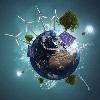












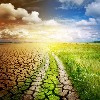






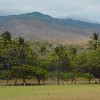

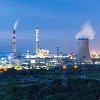


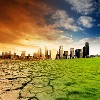
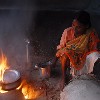





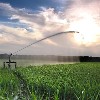

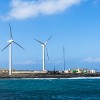

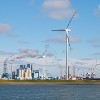



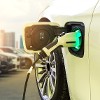
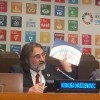

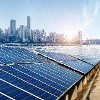
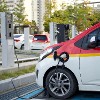

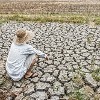



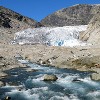






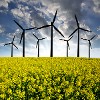
_cropped.jpg)

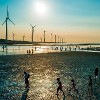


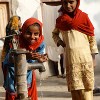
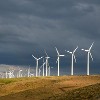
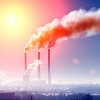
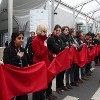









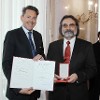
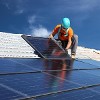

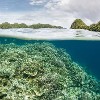
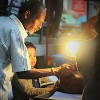

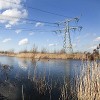
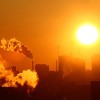
.jpg)
